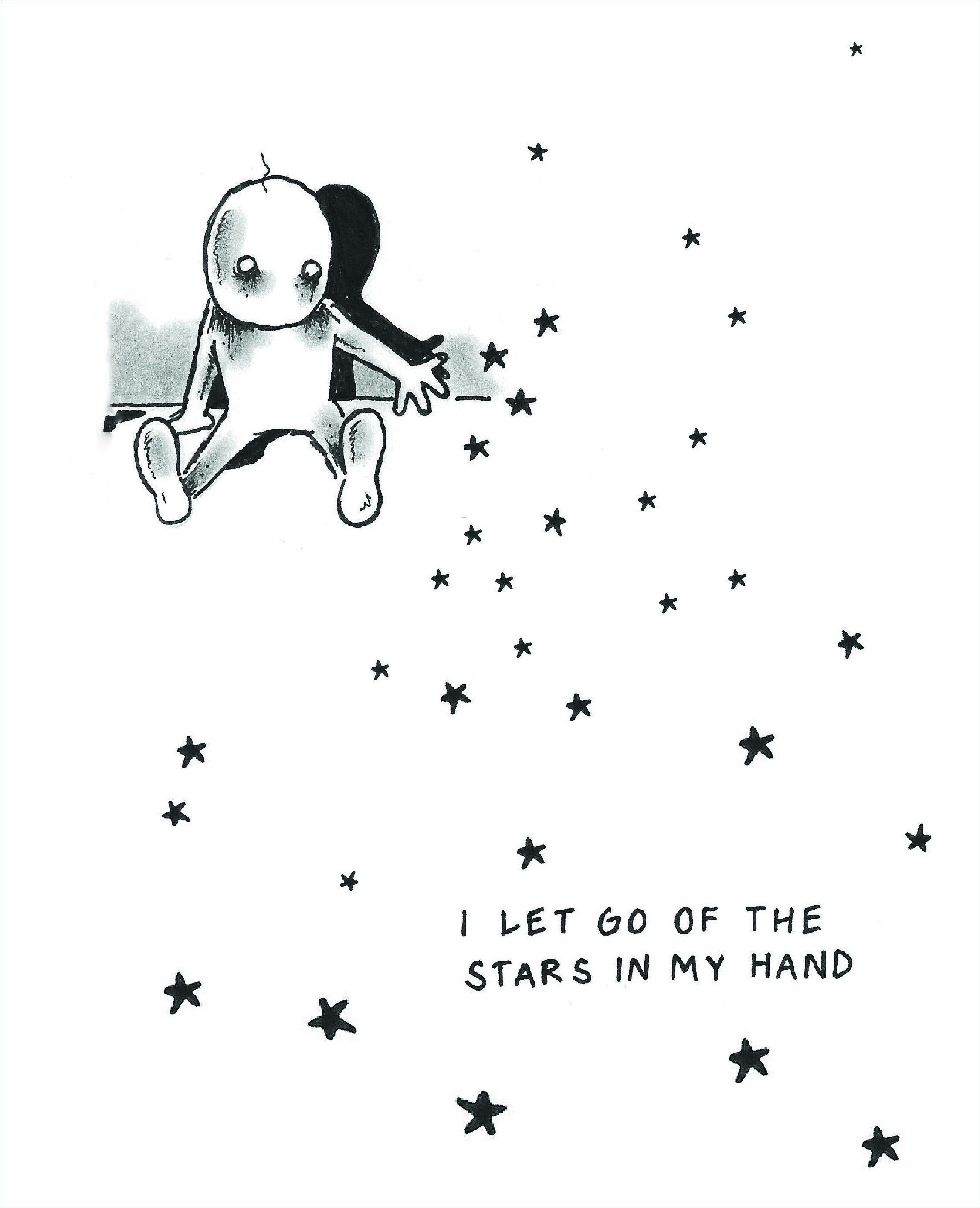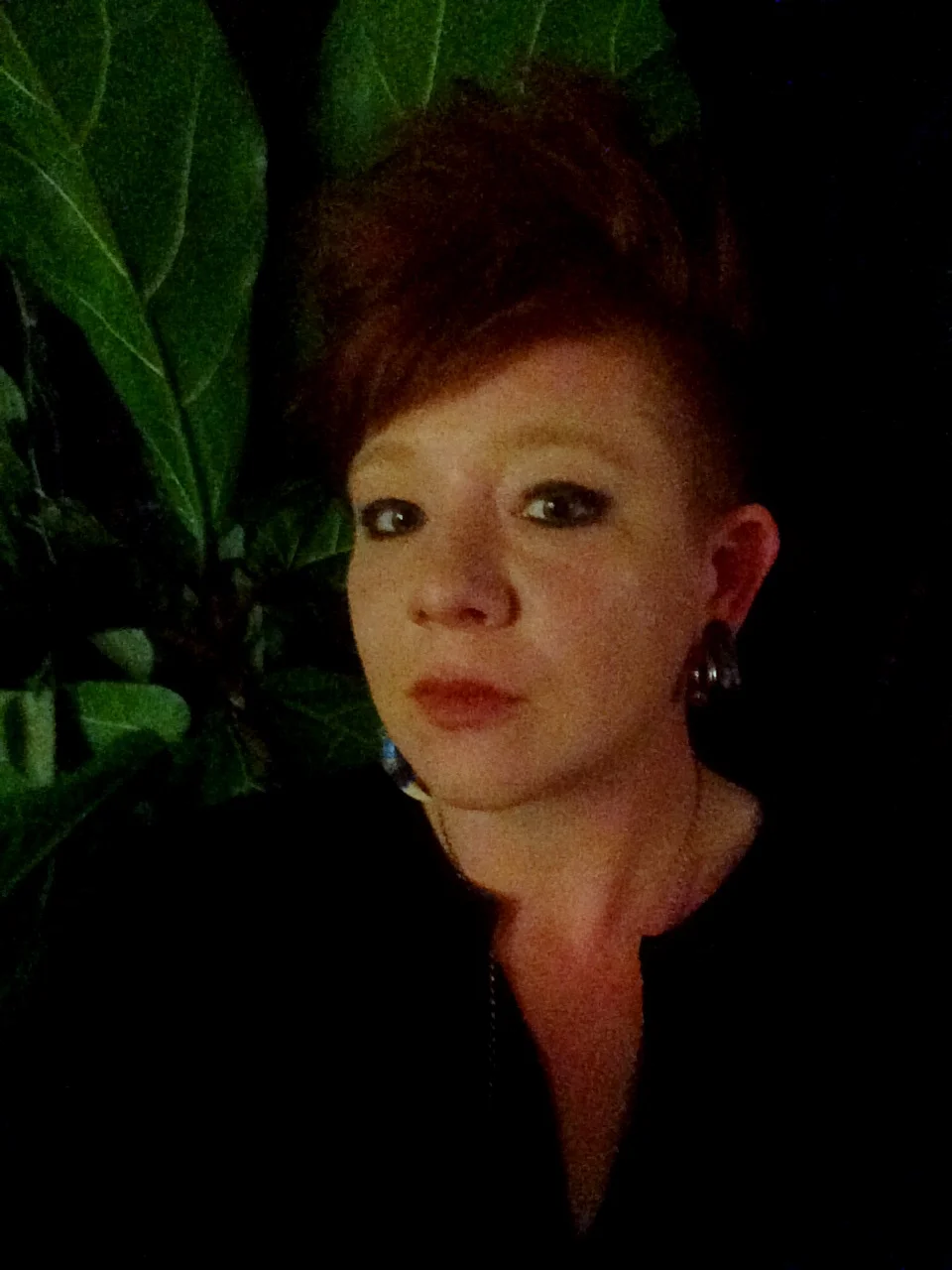Chavisa Woods is great weather's guest prose editor for 2015. Submissions for our next anthology are open October 15th 2014 to January 15th 2015—so send her your best short stories, flash fiction, dramatic monologues, and creative non-fiction.
Chavisa is the author of two books of fiction: The Albino Album: A Novel (Seven Stories Press, 2013) and Love Does Not Make Me Gentle or Kind (Fly by Night Press, 2009). The second edition of this book was released by Autonomedia Press under the Unbearables imprint in 2013. She was the recipient of the 2013 Cobalt Prize for fiction, a finalist (second nomination) for the 2013 Lambda Literary Award for fiction, and the recipient of the 2009 Jerome Foundation award for emerging authors. As a featured author, she has appeared a at such notable venues as The Whitney Museum of American Art, City Lights Bookstore, Town Hall Seattle, The Brecht Forum, The Cervantes Institute, and St. Mark’s Poetry Project. Her writing has appeared in such publications as The Evergreen Review, New York Quarterly, The Brooklyn Rail, Cleaver Magazine, and Jadaliyya. Chavisa has presented lectures and conducted workshops on short fiction and poetry at a number of academic institutions, including: New York University (NYU), Penn State, Sarah Lawrence College, Bard College, Brooklyn College, Brooklyn Tech and the New School. She is currently completing her third work of full-length fiction. Website
*
TF: Since you will be the prose editor for our next anthology, we were wondering what your take on prose is? What gets you hot? What turns you off?
CW: I have a pretty wide range of styles and voices that, as you say, "get me hot." I think most of my favorite writers share a simultaneous attention to language paired with content that demands attention. When I read a piece, it matters to me that the person has a deep or urgent need to convey something. Whether that something is political, narrative-driven, or aesthetic, light or heavy—it doesn't matter. The fact that the writer itched to deliver this message, and the message is about something larger than themselves, that's what matters. Along with that, when I'm reading it's important to me to see that no other words could have been used to express quite the same meaning as the words the writer chose. I like to know that there was no other way the writer could have said exactly what they did. I look for meaning, or layers of meaning, to not only be conveyed through words, but be embedded in the language itself.
TF: Who are some of your favorite prose writers and why?
CW: I just typed out this list off of the top of my head, and thought about paring it down, but I think I'll leave it in its entirety, because each of these writers brings something very specific to prose as an art form that will influence writers for generations to come. These are some big names; very heavy hitters, but these are the writers who have stayed with me and whom I return to again and again when I want inspiration, or just a terrific read.
My favorite prose writers are: Richard Brautigan, Harry Crews, Marguerite Yourcenar, Toni Morrison, Flannery O’Connor, Carson McCullers, David Foster Wallace, Jorge Luis Borges, Ralph Ellison, Eileen Myles, Michel Foucault, Angela Carter, Virginia Woolf, Gertrude Stein, Gabriel Garcia Márquez, Harlan Ellison, Vladimir Nabokov, William Faulkner, and Djuna Barnes.
If you pick up a book by any of these authors, you’re going to get language that pops or flows or grows off the page, and you're going to learn something about yourself, the universe, society, or discover a new aesthetic possibility. After I read any of these writers, I feel bettered. These writers make me feel brave, and existentially so. They expand me intellectually and emotionally. Even the bleakest stories and essays make me feel hopeful, because these writers remind me that we, as humans, have the capacity to create and shape entire worlds of ideas; worlds with their own rules, as weird as we want them to be; worlds whose boundaries are imminent, infinite or not existent at all. And that is what art is. And that is how I approach creative prose; not as simply a conveyer of literal information, but as an art piece.
TF: Can you talk about your novel that was released last year called The Albino Album?
CW: The Albino Album took me five years to write, and was quite a departure from my first book, Love Does Not Make Me Gentle or Kind, which was more poetic and language driven, and also personally closer to me. I enjoyed writing The Albino Album, because I was able to step back and be a bit lighter for long periods of time. It's a big book, 550 pages, so it moves fast. It has to at that length. It's much more character and plot driven than my earlier writing. I love hearing and seeing people I dont know talking about the book, and talking about the main character, Mya, like she's a real person who they went through something with. I've seen many reader comments and heard people say things like "I couldn't put the book down," or, "I just had to know what happened next." I didn't really set out to write a "page turner" and didn't even know I could write a book like that. But when I got into it with the characters, parts of it almost wrote itself, like the characters started doing things, and there were parts I couldn't write fast enough.
I lived in this very exciting and sometimes painful world with these characters for five years. When it was out and published, it felt a little strange for me. Now other people get to go into the world of that book. They spend a couple of weeks in it. Which was the point for the book; to be read. But in a way, I do miss it. Five years is a long time to spend with a piece. When it was over and I sat down to write, it took me a while to figure out what to do with myself because I was alone again. Starting over with a blank page.
TF: What do you think are some good practices when submitting work to be published?
CW: It's always best to have read something produced by the press you're submitting to. Also, in the writer’s statement, remember, it's the submission that’s being considered, not the statement. Don't overthink it. Editors want to know why you are excited and confident about the piece, and in what context you see your work. There is a human being just like you; another writer on the other end, reading. Just relax and explain or contextualize the piece as you would in person to another writer.
TF: What's next for you?
CW: I'm nearly finished with a collection of short fiction that is very political in theme, and am working slowly on a more personal novella.
*
Submissions for great weather for MEDIA's next anthology are open October 15 2014 to January 15 2015






